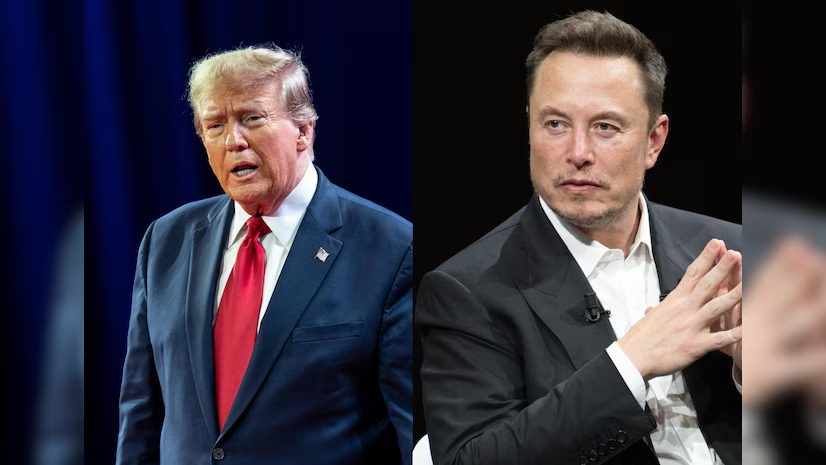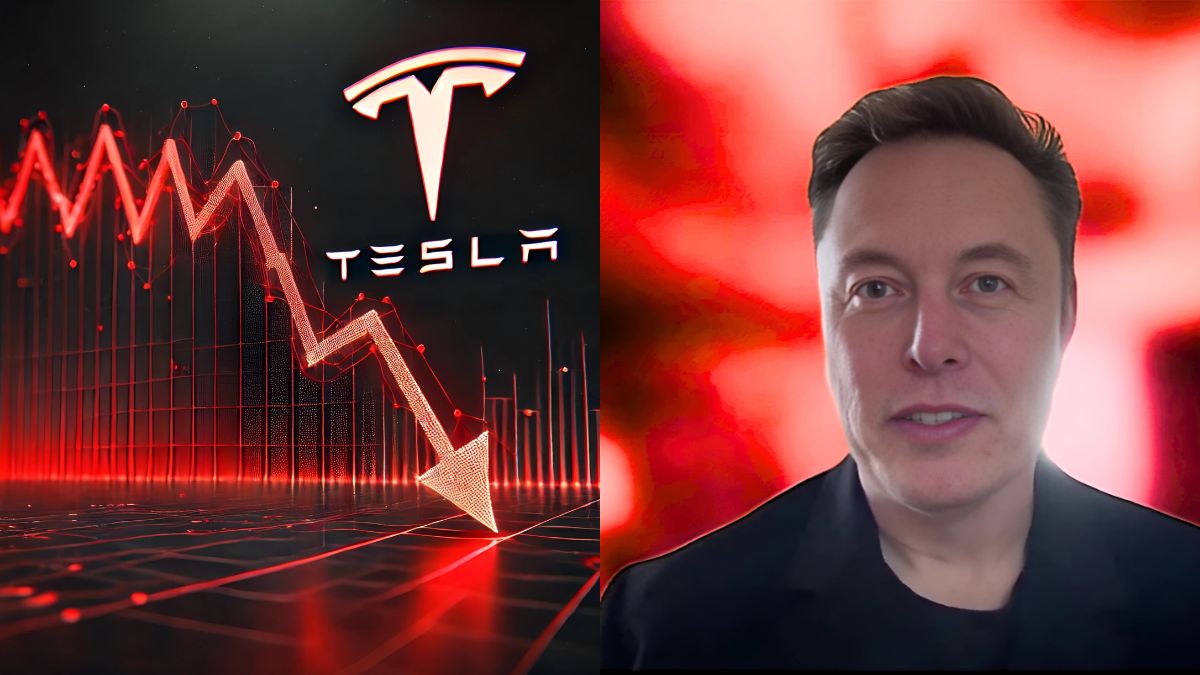Tesla’s monthly EV sales in China have tumbled by more than 50% in the past month

Tesla’s Stock Has Lost Its ‘Trump Bump’: The Latest Bad News
Tesla, one of the most influential and talked-about companies in the world, has been experiencing a significant downturn in its stock value. The electric vehicle (EV) giant, led by Elon Musk, has seen its stock price tumble, erasing the gains it made during the so-called “Trump bump.” This downturn has led investors and analysts to reassess Tesla’s trajectory, raising concerns about the company’s financial stability, market strategy, and leadership.
In this in-depth analysis, we will explore the reasons behind Tesla’s stock decline, the broader economic and political factors at play, and what the future may hold for the EV maker.
The Fall of Tesla’s Stock Price
Tesla’s stock has dropped significantly, with its value now more than 50% lower than its mid-December highs. This sharp decline has raised red flags among investors, particularly those who had been bullish on the company’s long-term prospects. While Tesla has experienced volatility in the past, this recent downturn appears to be more than just a short-term fluctuation.

Some key statistics highlight Tesla’s struggles:
- Tesla’s market capitalization has fallen below $1 trillion for the first time since November 2024.
- Sales in key markets such as China and Europe have been declining at an alarming rate.
- Investor confidence has weakened as concerns mount over Elon Musk’s leadership and external political engagements.
Declining Sales in China and Europe
One of the major contributing factors to Tesla’s stock decline has been the weakening demand for its vehicles in critical markets like China and Europe. China, being one of Tesla’s largest consumer bases, has seen a sharp decline in demand, with increased competition from domestic EV manufacturers such as BYD and NIO. Additionally, changes in government incentives and tax policies have made it more difficult for Tesla to maintain its stronghold in these regions.
In Europe, Tesla’s performance has been similarly concerning. Data from early 2025 shows that Tesla’s vehicle sales in the EU and UK declined by nearly half, signaling that the company’s growth in the region may have peaked. Several European automakers, including Volkswagen, Mercedes-Benz, and BMW, have aggressively entered the EV market, offering competitive alternatives to Tesla’s vehicles.
The Role of Elon Musk’s Leadership
Elon Musk’s leadership has always been a topic of discussion in the financial world, and his recent focus on political activities has raised concerns among investors. Musk’s involvement in governmental matters in Washington, D.C., has led to speculation that he may not be as committed to Tesla’s success as he once was.
A recent survey found that 60% of Tesla investors believe Musk’s political focus is negatively impacting the company. Many investors and analysts argue that his attention is divided between Tesla, SpaceX, and his other ventures, leading to instability within Tesla’s management.
Furthermore, Musk’s controversial public statements and actions, including his battles with regulators and media outlets, have contributed to uncertainty surrounding Tesla’s future. Investors who were once confident in Musk’s ability to lead Tesla into the future are now questioning whether his leadership style is sustainable for a publicly traded company.
Broader Economic Factors Affecting Tesla’s Stock
In addition to internal company challenges, broader economic factors have played a significant role in Tesla’s stock decline. These factors include:
1. Rising Interest Rates
The U.S. Federal Reserve’s decision to raise interest rates has had a profound impact on high-growth companies like Tesla. As borrowing costs increase, consumer demand for expensive goods, including electric vehicles, tends to decline. This has led to a slowdown in Tesla’s sales growth, further contributing to its stock struggles.
2. U.S.-China Trade Tensions
Ongoing trade tensions between the United States and China have also weighed on Tesla’s stock. With China being one of Tesla’s biggest markets, any tariffs or restrictions on trade between the two nations can significantly impact Tesla’s ability to sell its vehicles there. The Chinese government has introduced retaliatory tariffs that affect U.S. goods, further complicating Tesla’s position in the country.
3. Global Supply Chain Disruptions
Supply chain issues continue to be a major challenge for Tesla and the automotive industry as a whole. Delays in securing essential materials such as lithium, nickel, and semiconductors have impacted production levels and increased manufacturing costs. As a result, Tesla has faced difficulties in meeting demand and maintaining its profit margins.
Wall Street’s Reaction and Analyst Predictions
The reaction from Wall Street has been mixed, with some analysts viewing Tesla’s decline as an opportunity to buy, while others believe the stock could fall even further. Some analysts have downgraded Tesla’s stock rating, citing concerns about declining demand and increased competition.
Key predictions from financial analysts include:
- Some experts believe Tesla’s stock could drop another 20% if sales continue to decline.
- Others argue that Tesla’s long-term potential remains strong, but the company needs to refocus its strategy and leadership.
- Investors are closely watching Tesla’s upcoming earnings report to gauge whether the company can recover from this downturn.
What’s Next for Tesla?
Despite its recent challenges, Tesla remains one of the most innovative companies in the EV industry. The company is expected to make several strategic moves to regain investor confidence and stabilize its stock price. These include:
1. Expansion into New Markets
Tesla is actively looking to expand its presence in emerging markets, such as India and Southeast Asia. By entering new territories, the company hopes to offset declining sales in China and Europe.
2. New Vehicle Releases
Tesla is working on launching new models, including an affordable electric vehicle that could appeal to a broader consumer base. The success of these new releases will be critical to Tesla’s future growth.
3. Leadership and Strategic Changes
Many investors are calling for changes in Tesla’s leadership structure to ensure that Musk remains focused on the company’s core business. Some have suggested that Tesla appoint a new CEO while Musk continues as a visionary leader.
Conclusion
Tesla’s stock has taken a significant hit, and the company is facing some of the biggest challenges in its history. Declining sales in key markets, concerns over Musk’s leadership, and broader economic factors have all contributed to Tesla’s downturn. While the road ahead may be uncertain, Tesla has the potential to bounce back if it can successfully navigate these obstacles.
For investors, the key question remains: Is Tesla’s stock decline a temporary setback or a sign of deeper issues? Only time will tell whether the EV giant can reclaim its former glory and continue leading the industry into the future.






Leave a Reply